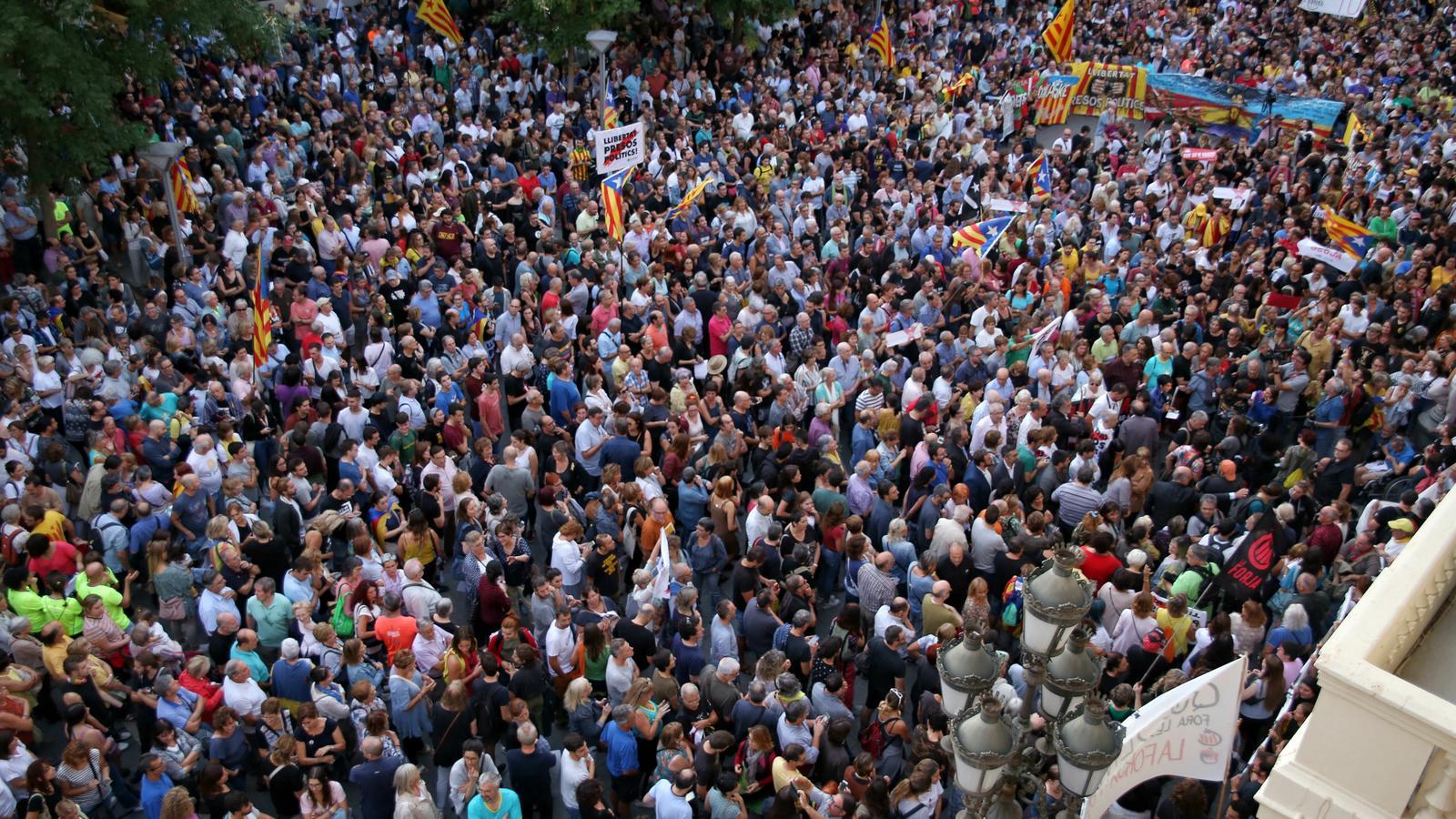Reality distortion: from “rebellion” to “terrorism”
The Spanish State has taken another step to question the peaceful, democratic nature of Catalonia’s independence movement

BarcelonaMonday’s Guardia Civil operation —acting on the Public Prosecutor’s accusations— led to the arrest of nine people who stand accused of “secessionist terrorism”, seven of whom have been sent to Madrid’s Audiencia Nacional court. The move should be understood as a means for the State to prepare for the imminent verdict in the case of the Catalan leaders who staged the 2017 independence bid. In addition, it would appear to be a warning against the predictable public shock that a harsh sentence will likely trigger. But, in actual fact, all it has accomplished is to increase the existing outrage in Catalonia. Who is jeopardising social peace? Beyond Catalonia, the gambit also aims to instil a certain climate both in Spain’s public opinion and among foreign media.
The joint efforts by Spain’s justice system and security forces must be understood in that context: they are a fresh attempt to smear Catalonia’s peaceful, democratic pro-independence movement. The charges of rebellion and sedition brought against the political prisoners were based on a violent outburst that never occurred and now they have fabricated a new crime: “Catalan secessionist terrorism”. Five hundred Guardia Civil officers were sent to Catalonia to do a job which, by the looks of it, seemed hardly dangerous at all.
It is hard to believe, but we are talking about terrorism. The independence movement’s immaculate track record, the explicitly pacifist views held by its jailed leaders, the ongoing calls to non-violent action within the secessionist camp all amount to nothing. Actually, that might be precisely the reason why they are spreading doubt within the public opinion. The picture of massive demonstrations without a single incident must be erased at any cost. Obviously, it is very difficult to criminalise such an impeccably democratic and peaceful struggle, a movement that looks nearly angelical if you compare it to, say, France’s gilets jaunes. As a matter of fact, on Monday evening thousands of people staged street protests, once again in an exemplary manner, to voice their disbelief in the various towns where the searches and arrests had taken place.
Parallel to the operation against the alleged terrorist group, we had a statement by the Supreme Court’s presiding judge, Carlos Lesmes, who warned that the Catalan people’s reaction to the verdict on the case of the Catalan leaders should be “neither exaggerated nor overstated”. Furthermore, Spain’s Interior Minister Fernando Grande-Marlaska announced that he isn’t ruling out the possibility of sending more Spanish police to Catalonia. When you look at the big picture, it is clear that the State has decided to take the initiative and act pre-emptively. But, once again, they have overplayed their hand. Indeed, sending five hundred officers to search for terrorists in Catalonia is exaggerated and overstated. Once again, we are witnessing a regrettable preventive crackdown that speaks volumes about the rule of law in Spain.
